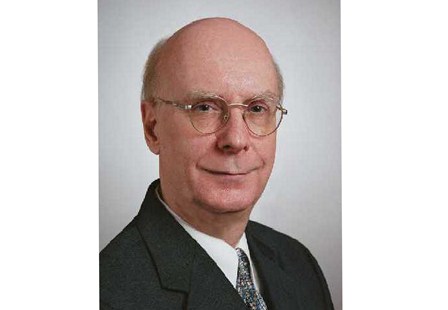
Published 5-09-2012, 05:12
William Dunkerley
William Dunkerley is a media business analyst and consultant based in New Britain, CT. He works extensively with media organizations in Russia and other post-communist countries, and has advised government leaders on strategies for building press freedom and a healthy media sector. He is a Senior Fellow at the American University in Moscow.
The Pussy Riot news story may be nothing more than a ploy to compromise the Russian state. Eerie similarities exist with the famous Alexander Litvinenko case from 2006.
The Pussy Riot story portrayed in the press gives no obvious hint of the ploy. Reports suggest that Pussy Riot is a group of principled dissidents standing up for free speech and opposing Putin's oppression. A well-known American university professor wrote an article likening the Pussy Riot group to Dostoyevsky. He said the members represent "a long-standing tradition of dissent by the Russian intelligentsia."
That professor and the Western media must have a strange concept of "intelligentsia." Nadezhda Tolokonnikova is regarded by many as the leader of Pussy Riot. Nude photos of that intelligentsia member are widely displayed across the Internet. The Guardian newspaper claims she was "taking part in an orgy in Moscow's biological museum." Other stunts reported to be associated with the Pussy Riot group also involved indecency and lasciviousness.
But this darker side of the Pussy Riot group has received scant coverage in the press. Certainly that image of wanton exhibitionism would seem to contrast sharply with the dignified characterizations that have prevailed in media stories.
Media have also missed intersections between the Pussy Riot story and the fabricated media account of Alexander Litvinenko's purported murder. I wrote a book titled The Phony Litvinenko Murder. It shows that despite widespread media claims of Russian state involvement in Litvinenko's death, the London coroner in fact has never even concluded he was a victim of homicide.
So, it was startling to see in media reports that people and organizations that played key roles in the fallacious Litvinenko allegations are also connected to Pussy Riot. Wired magazine interviewed Alex Goldfarb who it identified as "a Russian expat living in New York." Goldfarb said Pussy Riot inspired him. "The grace and courage and intelligence with which they handled themselves, is all amazing of course," he added. This is apparently the same Alex Goldfarb who is reportedly employed by Boris Berezovsky, and who served as the principal spokesperson in the fabricated media stories regarding Litvinenko. Berezovsky is a wealthy arch-enemy of Russian president Vladimir Putin's, now living in London.
Certainly that was enough to start me wondering just how many common players are involved in the Pussy Riot and Litvinenko cases. Just at that time, a colleague of mine received an email from a well-known British music agent with whom he has a business relationship. The agent reported he was contacted by the London PR firm Bell Pottinger, offering his artists "up to 100,000 euros for a statement in support of the Pussy Riot." Bell Pottinger was known in the Litvinenko case to be working on behalf of Berezovsky in support of his media assault on Putin.
Is the commonality of these players in the two seemingly disparate cases just a strange coincidence? Or are the cases both examples of the same thing: someone's organized ploy to destabilize the Russian administration? I don't know the answer to those questions. But it seems to me, this is something that the public champions of Pussy Riot and the journalists covering the story should be looking into.



.jpg/250px-ElbeDay1945_(NARA_ww2-121).jpg)





